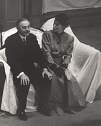











Originally, movie dramas were based on plays and while they were entertaining to people who had never been to a theatre, they were not generally popular because they did not have the dynamic space and time qualities of other types of movies such as the Westerns. The directors were also not bold enough to use the new medium to its fullest. Close Ups were not even used until much later in the Forties. As a result, while Westerns and Comedies were easy to make because of their action orientation, dramas were not that successfully produced. Also, the great theatre actors of the time generally considered it below their dignity to play in the movies. Dramas are generally serious stories that at least offer some hope of redemption to some of the participants or convey a positive message to the viewer. Romeo and Juliet is such a tale. It is tragic and yet the lovers, at least consummated their love and at the end there is a message of hope. Generally, dramas are interesting stories that stick close to reality and they give you a good feeling for being alive. You either share in other people's happiness or are glad that your life is not as miserable as theirs! The advent of sound made a major change to the dramas. Many new actors received the opportunity to play in the movies. Movies like the Grand Hotel (1932) could not have been successfully made without sound. |
||||||||||
|
Throughout the following decades, great dramas were made. Some notables were Mutiny on the Bounty with Charles Laughton and Clarke Gable in 1935. San Francisco (1936) with Clarke Gable and Jeanette McDonald, Mildred Pierce (1945) with Joan Crawford and Zachary Scott, Sudden Fear (1952) and Autumn Leaves (1956.) Marlon Brando had his best years in the fifties with such films as A Streetcar Named Desire (1951), Viva Zapata (1952) and On the Waterfront (1954.) He also made the Mutiny on Bounty in 1962 with Trevor Howard as Captain Bligh. Laurence Olivier in Hamlet (1948) and many other greats such as Paul Muni and Franchotte Tone, Norma Shearer and Greer Garson are stars that shone in that era. I would like to mention two magnificent but rarely shown films. First, The Magnificent Yankee, directed by John Sturges in 1950. This movie starred Louis Calhern as Oliver Wendell Holmes, probably the most principled Supreme Court Justice in the history of the United States. It is important to note that to this day, Supreme Court nominees, senators and lawyers quote him regularly when trying to explain a decision or criteria for an existing law. Louis Calhern played that role with dignity. The movie and Louis Calhern were nominated for Academy Awards. He lost to William Holden for his acting in Sunset Boulevard. In 1947, Tyrone Power starred in Nightmare Alley directed by Edmund Goulding. Tyrone Power played an ambitious man who eventually ends up as a carnival geek where people feed him live chickens. A well crafted cinema noir. I saw this movie only once on television and it still haunts me. In the late fifties and into the sixties, new actors such as James Dean, Paul Newman, Rock Hudson, Montgomery Clift and Shelley Winters made their marks in Hollywood. One of the best romantic dramas ever made was Rhapsody (1954) directed by Charles Vidor with Elizabeth Taylor, Vittorio Gassman, Louise Calhern and John Ericson. It was a rare movie, a contemporary drama interwoven with classical music by Tchaikovsky and Rachmaninov. Cat on a Hot Tin Roof by Tennessee Williams (1958) was directed by Richard Brooks and starred Paul Newman, Elizabeth Taylor and Burl Ives, a singer turned actor. Another major drama was A Place in the Sun (1954) which was originally titled An American Tragedy with Montgomery Clift and a riveting performance by Shelley Winters. After the Godfather (1972) Marlon Brando's star went into a steep decline as his girth increased proportionally. He made a few good movies and many forgettable ones. His last major movie was Apocalypse Now (1979) directed by Francis Ford Coppola. In the late seventies and to the present time we have seen actors such as Meryl Streep in Sophie's Choice (1982), Out of Africa (1985), and Bridges of Madison County (1995) and Robert De Niro who had three great movies in a row, the Deer Hunter (1978), Raging Bull (1980) and True Confessions (1981.) |
|||||||||
Steven Spielberg's Schindler's List (1993) staring Ben Kingsley and Liam Neeson was another heart wrenching drama. American Beauty (1999) directed by Sam Mendes with Kevin Spacey and Annette Bening was very well crafted although it was depressing. Some movies are what we would call pure dramas. For example A Beautiful Mind (2001) was a real life story that took you along the life of the mad genius John Nash and all his ups and downs. So was Malcolm X by Spike Lee. Many movies of other genres could also be considered dramas. For example even an epic adventure movie such as the Gladiator is also a drama. Or take the Godfather a crime movie or Evita, a musical, both are dramas. Eyes Wide Shut (1999) was a wonderful but rather surrealistic drama which was Stanley Kubrick's last movie. I first saw this movie in England where the censors are not so pedestrian. The so-called orgy scene was so tastefully done. The direction, continuity and acting were so well coordinated that I felt I was Tom Cruise intruding in that scene. |